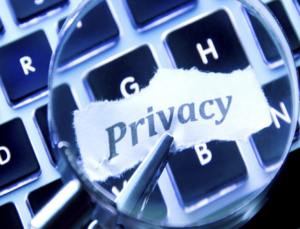
There are several reasons why many people are saying that online privacy and data privacy no longer exist. Cyber attacks and data breaches are one thing to consider, but you also need to think about the fact that, whenever you are on the internet, it is highly likely that your activity is being tracked in one way or another. In other words, companies are collecting data about you and using it to their advantage, whether they are selling it or they are creating targeted ads to try to entice you to buy certain products and services.
But it isn’t all hopeless, as there are things you can do to keep your data as secure as possible. Keep reading for a few tips to get started.
Find Out Which Websites Are Selling Your Information
One of the first things that you can do to regain a sense of control over your data and personal information is to just perform an internet search using your name. Go to Google or any other search engine, type in your full name, and see which websites appear. If you are like most people, you will find that a lot of people search websites are displaying much of your personal details, including your contact information, for free, while also giving people the option to buy background checks on you that can reveal even more information about your life.
Many people who are concerned about data privacy and online privacy don’t like the idea of having their information on these types of websites. But, if you go to those sites, you will also see that they do have an opt out section where you can request the removal of your information. Take Nuwber, as an example. There, you can find information on a lot of people, but there is an opt out section to have your listings removed easily.
Change the Settings on Your Computers and Devices
When it comes to your privacy, you might be surprised to find that there are a lot of permissions that will allow browsers, sites, and apps to collect data about you based on your activity online. If you can change those permissions in your settings, you can tell sites and devices to stop tracking what you do.
The simple act of changing the settings could make a big difference when it comes to who can track everything from your location to your browsing history. So, go into every app that you have downloaded and carefully read through the privacy options. Set everything to private, turn off tracking, and take any other options that help ensure your data won’t be collected and used. The same is true for any browsers you use and any social media platforms that you’re on. Plus, you can even secure your computers and devices by going into their settings too.
Take Steps to Secure Your Computers and Devices
Finally, in order to keep your data private and secure, it is a great idea to install high-quality security software, a virtual private network (VPN), and other tools that can help prevent companies from tracking you. Plus, these types of tools can also help you avoid viruses, malware, and other threats that you might be exposed to daily just by being online.
The bottom line is this: a lot of your privacy is at risk online, but there are things that you can do about it.

















